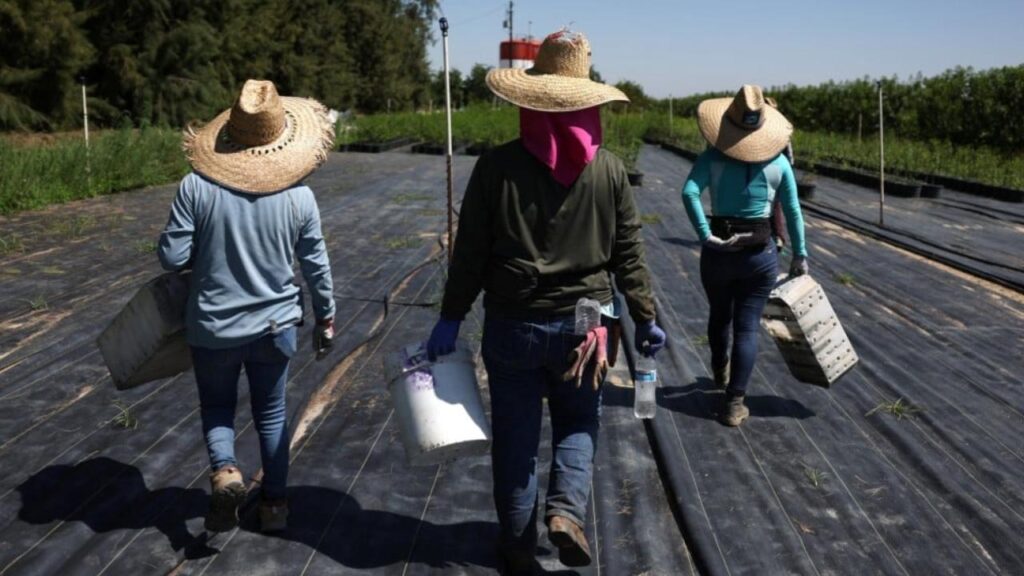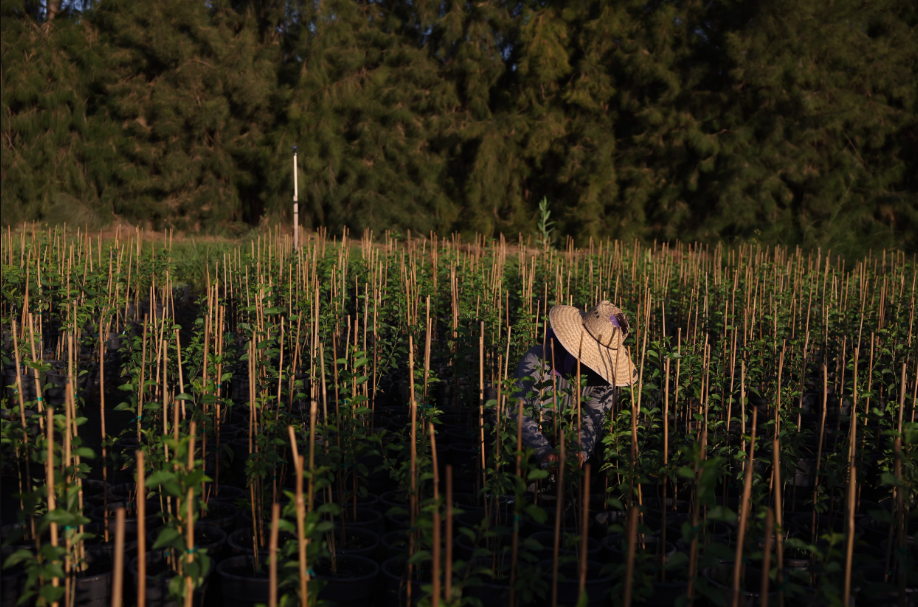In the heat of summer, many U.S. farms are grappling with a crisis that goes beyond fluctuating market prices or unpredictable weather: labor shortages. Increasingly, Immigration and Customs Enforcement (ICE) raids are targeting workers on farms, leading to mass deportations and leaving crops in the fields to rot. This is a growing problem with severe implications not just for farmers, but for the broader agricultural economy, which heavily depends on immigrant labor.

Farmers, especially in regions like California, Florida, and the Midwest, have faced escalating challenges as ICE raids disrupt their workforce. Many farmworkers are undocumented, and while this has always been a sensitive issue, the recent intensification of enforcement is making things worse. As workers are detained or deported, there’s no one to harvest fruits, vegetables, or even pack the produce for transport. The result? A lot of wasted crops and a lot of lost revenue.
ICE Raids on US Farm
| Insight | Stat | Source |
|---|---|---|
| Immigrant workers are essential | 73% of farmworkers in the U.S. are foreign-born | U.S. Department of Agriculture (USDA) |
| Crop losses are skyrocketing | $3 billion in annual crop loss due to labor shortages in the U.S. | National Farmers Union (NFU) |
| ICE raids are on the rise | ICE conducted 2,000 workplace raids in 2023 | ICE Annual Report |
The situation unfolding on U.S. farms highlights a complex issue that intertwines economic, human, and political factors. ICE raids may be part of the broader immigration enforcement strategy, but they are also severely disrupting American agriculture. As crops rot and farmers face ruin, the need for comprehensive immigration reform grows clearer each day. Until then, farmers and farmworkers will continue to bear the burden of an outdated and broken system.
The Impact of ICE Raids on U.S. Farms
Farmworkers, many of whom are undocumented, represent a critical segment of the agricultural workforce. They handle tasks that are both physically demanding and essential, like harvesting crops, which cannot wait for a “rainy day.” A lot of these workers come from countries like Mexico, Guatemala, and Honduras. The labor-intensive nature of farming makes it hard for U.S. citizens to fill these roles, creating an economy reliant on immigrant labor.
But in recent years, the frequency and scale of ICE raids have left farmers scrambling to find replacements. The consequences are immediate. In some areas, crops like lettuce, strawberries, and tomatoes have been left in the fields, with no one to pick them. This isn’t just a minor inconvenience—it’s an economic disaster for farmers who already face slim profit margins. When crops are left to spoil, not only is the farmer’s income wiped out, but entire communities lose access to locally-grown produce.
Economic Consequences
The economic ripple effect of these raids is devastating. According to the National Farmers Union (NFU), labor shortages due to deportations lead to crop losses estimated at over $3 billion annually in the U.S. This includes fruits, vegetables, and even flowers. When the workforce is depleted, farmers face not only the loss of income but also higher operational costs. Labor replacements, often temporary and less skilled, drive up production costs, and many small farmers simply can’t afford to keep their operations running.
The Struggle of Farmers Who Depend on Immigrant Labor
One of the biggest challenges for farmers is finding a sustainable solution to the labor shortage. While some have turned to automation, others still rely heavily on immigrant workers. Small- to medium-sized farms are particularly vulnerable, as they often lack the capital to invest in high-tech solutions. For these farmers, immigrant workers are not just essential—they are the backbone of their business.
A farmer in California’s Central Valley, one of the largest agricultural regions in the country, shared his frustration. “We rely on these workers. Without them, our crops would just die in the fields.” The struggle of U.S. farmers highlights the urgent need for immigration reform that balances both labor needs and border security.

Human Cost
While the economic side of things is grim, there’s also the human cost of these deportations. Many farmworkers have lived in the U.S. for years, raised families, and formed communities. The sudden removal of a worker from the farm not only disrupts the day-to-day business but also deeply impacts families who are left behind. Children lose their parents, and farms lose workers who are more than just employees—they are members of a tight-knit network.
In 2024, ICE raids affected thousands of families, leaving children wondering when they would see their parents again. The emotional toll is often overlooked, but it is as real as the economic one.
The Call for Reform
To address the mounting crisis, many farmworker advocates are calling for comprehensive immigration reform. Proposals range from creating a clear and accessible path to citizenship for undocumented workers to providing legal status for farmworkers without fear of deportation. Without these changes, farmers will continue to struggle with labor shortages, and crops will continue to rot in the fields.
At the same time, businesses are beginning to realize that the workforce needs protection to keep the agricultural economy functioning. In 2023, the U.S. Chamber of Commerce pushed for more immigration flexibility to address labor shortages. They argue that without reform, the American agriculture industry will fall behind its global competitors.
ICE Raids: What’s Being Done?
Some states and local governments have stepped up to support immigrant workers and protect them from federal immigration enforcement. California, for example, has passed laws that shield workers from ICE raids at workplaces. These laws give farmworkers some protection, but they cannot stop the federal government’s actions entirely. The state’s efforts have slowed the impact of ICE raids on farms but have not completely eradicated the problem.
Meanwhile, in Washington, discussions around immigration reform have been ongoing for years, but progress has been slow. Many agree that something needs to change, but political divides make it challenging to reach a consensus on the best approach.
What’s Next for U.S. Farms?
As long as the current immigration policies remain unchanged, the future of farming in the U.S. looks uncertain. Farmers will likely continue to face labor shortages, leading to even more crop losses and financial hardships. However, there is hope that as the conversation around immigration reform gains traction, solutions will be found that both secure the borders and allow farmworkers to thrive.
Frequently Asked Questions
What is the role of immigrants in U.S. farming?
Immigrants make up about 73% of the agricultural workforce in the U.S., playing essential roles in planting, harvesting, and packing crops.
How do ICE raids impact crop production?
ICE raids often result in labor shortages, causing crops to be left in the fields and leading to millions in losses for farmers each year.
What can be done to fix the situation?
Advocates call for immigration reform that provides farmworkers with legal protections and pathways to citizenship to help secure a stable labor force.






